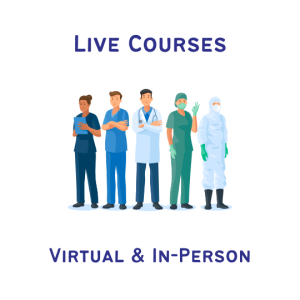
Published October 29, 2025 | Updated October 29, 2025
By Benjamin Alba
Ben is an emergency medicine registrar and concept founder of Ubuntu Network. He has worked all over the UK and specialises in high-altitude expeditions, having worked in Africa, Central Asia and the Himalaya. He has a passion for remote and rural medicine and feels honoured to have worked with marginalised populations in the UK as well as indigenous populations across the world, including the Swahili, Māori and Sherpa people. As a keen team sportsman, he truly believes in the power of teamwork and team building and he hopes that the effort of Ubuntu can inspire the current and future of wilderness medical providers to keep leading and providing an amazing service.
There are various ways of getting involved in expedition medicine generally, and then more specifically high-altitude medicine. Looking for an ‘in’ or a way to get a start in the field and then finding your own path can, however, feel daunting.
To start with, you are here, reading this article, so you must be somewhat interested. The primary question you should now ask yourself is: ‘Why do I want to get involved in expedition medicine?’
I have been fortunate enough to work for various operators and volunteer projects to high-altitude regions across Africa, Central Asia and the Himalaya in the last 4 years. But whilst this list ‘looks cool’, the sacrifices have been enormous and frankly some of the experiences have been less than desirable.
Motivation(s) for Expedition Medicine
I’ve asked you to consider where your own motivations come from, so it would only be fair to share my own. I spent most of my weekends between the ages of 13 and 18 hiking around Dartmoor, including plenty of walking trips with the family and then generally lots of time in a tent. Coupled with a couple of laps of the world to weird and wonderful places I had the ‘outdoor travel bug’ at a young age.
Working in the NHS, naturally, compressed my opportunities for getting outdoors, hiking, climbing, biking, etc., and I realised that I wanted to reintegrate that into my life. So, I started to explore whether I could access the outdoors through my job, and whilst quitting to become a mountain guide did cross my mind at various points, I chose the route below.
Coming out of F2 in 2020, I still felt that I had a lot to learn professionally in the hospital, let alone in the expedition medicine realm. I therefore decided to identify some learning opportunities, and they remain various; through university courses across all levels (diplomas/masters/PhDs), through to global health fellowships and humanitarian courses. There are also an overwhelming number of stand-alone courses with various providers to give you some insight into the skills required for expedition work across different biomes (i.e. jungle to desert to altitude).
Environments you might want to delve into as your Expedition Medicine interest:
What can you do to make yourself employable as an Expedition Medic?
When deciding on a route for self-study, ensure that you consider and weigh up the cost-benefit of any individual learning opportunity. Make sure to shop around, find and talk to people who have done the courses before, because ultimately these are businesses with income in mind.
While university courses are a year or longer commitment and a lot of hard graft, it may cost only slightly more than a two-week course in a chalet in the Alps and will give you infinitely more self-confidence and professional credential. That being said, you may not have a year to spare and therefore a short course may be what you are looking for.
UK University Course Options
There really is no right or wrong answer, but a general word of advice is to ensure that the cost (financial and time) you put into any learning covers the outcome you wish to achieve. Because I can tell you for sure, the expedition world won’t make you any money. In fact, it will probably cost you thousands of pounds and it will also take up a lot of your time.
Just to put this into perspective, at one stage I was asked by a European operator to work on Aconcagua for 21 days in a row. When I asked them what they would offer me, they said that they wouldn’t be covering my indemnity, travel insurance or any kit contribution, and I would also be required to pay them as a business 66% of the cost that a fully paying client would pay. As you can imagine, I flat out refused, as did a long list of those who were subsequently asked.
Some Training Course Provider Options
The Cost Benefit Analysis
To compound that and hammer home the point, of the five major expeditions I have done to date, only one of them has made me any money, and on average each one has cost me around £1000 for 2-4 weeks of work. I therefore cannot stress enough how important it is to treat yourself with respect and honour the skills you have spent time and money to acquire.
Do not accept every job, otherwise, as with the case above, this will erode not only your own future potential, but also the community as a whole, where companies will continue to undermine our value, make us pay to work and take the profit for themselves.
Because trust me, clients are shocked when they find out we are unpaid and often pay to work.
Check out this article from WEM on what you are worth as an expedition medic.
The Pay Conundrum
The unfortunate reason why this continues to happen is that opportunities in expedition and specifically high-altitude medicine are extremely hard to come by.
While there are various British and European providers that do trips to altitude (e.g. Elbrus, Aconcagua, Kilimanjaro, etc.), very few of these operators employ healthcare professionals to work ‘in country’ on their expeditions.
Coupled with that, when you think about where the high-altitude regions are in the world (Andes, Himalaya, Pamir, Hindu Kush), few of the mountains in these areas are yet deemed commercial enough to require on-site international medical professionals.
Whilst the high-altitude tourism world is growing and demand only rising, it is yet to be seen whether on-site medical cover will increase, or whether the demand will move towards further research into the altitude field. Thus, having a keen interest in the pathophysiology of altitude conditions and a desire to do research into high-altitude pathology may, in fact, stand you in better stead.
Either way, working on-site or doing a PhD, currently, both strands will still not make you any money.
Your expertise vs the expedition’s demands
When an opportunity does come around, be very careful about what you say yes to.
Whilst the feeling may to be to grab anything and everything that you are offered, think carefully about the role.
Consider:
Also, do you have the skills to cope with yourself on the expedition and then on top of that provide a medical service to countless other people at all times of day no matter how insignificant you may feel their issues to be?
The list of considerations is endless, and answers to all these questions determine if you have the necessary experience to cover the trip you have been asked to, the cost to you financially, the safety of others, and the risk of harm to you professionally or the client physically.
Another word of caution comes here and that is, above all, to protect yourself.
Currently, the expedition indemnity conundrum continues, and this is coupled with an absence of regulation in the expedition medical community generally.
For example, you could technically have graduated yesterday and go on an expedition and call yourself an expedition medical provider. Just as equally as I can with 5 years of ED experience across 4 countries, with most life support courses completed and having covered expeditions to the highest mountain in the world.
Thus, be very careful about what you are signing up for and be honest with yourself as to what skills you possess.
Choosing the Right Expedition
Opportunities that are worth pursuing for your first trip would be those with verified operators, with a wealth of history and experience.
This could be a long-standing operator who has run expeditions for years or charities/non-profits with good track records. The people involved in a company or project is also a big sway for me.
Names that have been around in the altitude world for years, written books and papers, etc., as well as colleagues that have had good experiences with certain operators and recommend them.
Examples of groups with experience, or experienced people at the helm that come to mind are the Himalayan Rescue Association (HRA), Slava Topol Project (STP), Operation Wallacea or through NHS schemes such as the Bristol Royal Infirmary Expedition Fellow role, where there is organised support for your first expedition.
Reaching out to your peers through platforms such as Adventure Medic or Ubuntu Network will also enable you to network and find your peers in the space, as well as further your understanding of the environment and offer a sounding board as to who is good to work with.
Groups & Jobs to Look At:
Expedition Time
The reality of being a high-altitude doctor is also not rosy. Yes, you will probably get to see some serious altitude illness (HAPE/HACE), and maybe even some frostbite. But from experience these are <5% of the clinical burden.
The majority of clinical care, as with all expedition work, is spent on gastroenteritis, throat illness, blisters and helping people manage their camping/climbing/walking skills. Thus, it is again key that you can look after yourself, often going long stretches without showering, being woken up in the middle of the night to deal with someone with diarrhoea, being in dusty, dry, cold environments for long periods of time with poor access to the internet, and all this while not showing discomfort or signs of fatigue.
There is, therefore, a significant degree of independence required, with often isolated decision-making, which can also be incredibly scary at times.
Listen to the Everest podcasts – part 1 and part 2 – by Benjamin Alba to get a real insight into the challenges of big mountain medicine.
What Does the Future Look Like?
The high-altitude and mountaineering world is changing at a drastic pace. More and more punters are going to altitude, and the tourist industry is rapidly transitioning to make the most profit it can from this shift.
It is yet to be seen whether this will lead to an increase in opportunities to participate in altitude medicine on the ground, but always remember to sit, be honest with yourself, and consider whether the role that lands in your inbox is right for you.
Whilst you may perceive this article to be on the whole negative, I am very grateful for the opportunities I have manufactured for myself, the people I have met and the cultures that have humbled me.
The mountains continue to leave me in awe, and I hope that one day you can have a similar experience on your own expeditions.
Some Amazing Resources to Check Out
If you have any questions and want to get in touch, please feel free to email me at benjamingjalba@gmail.com













